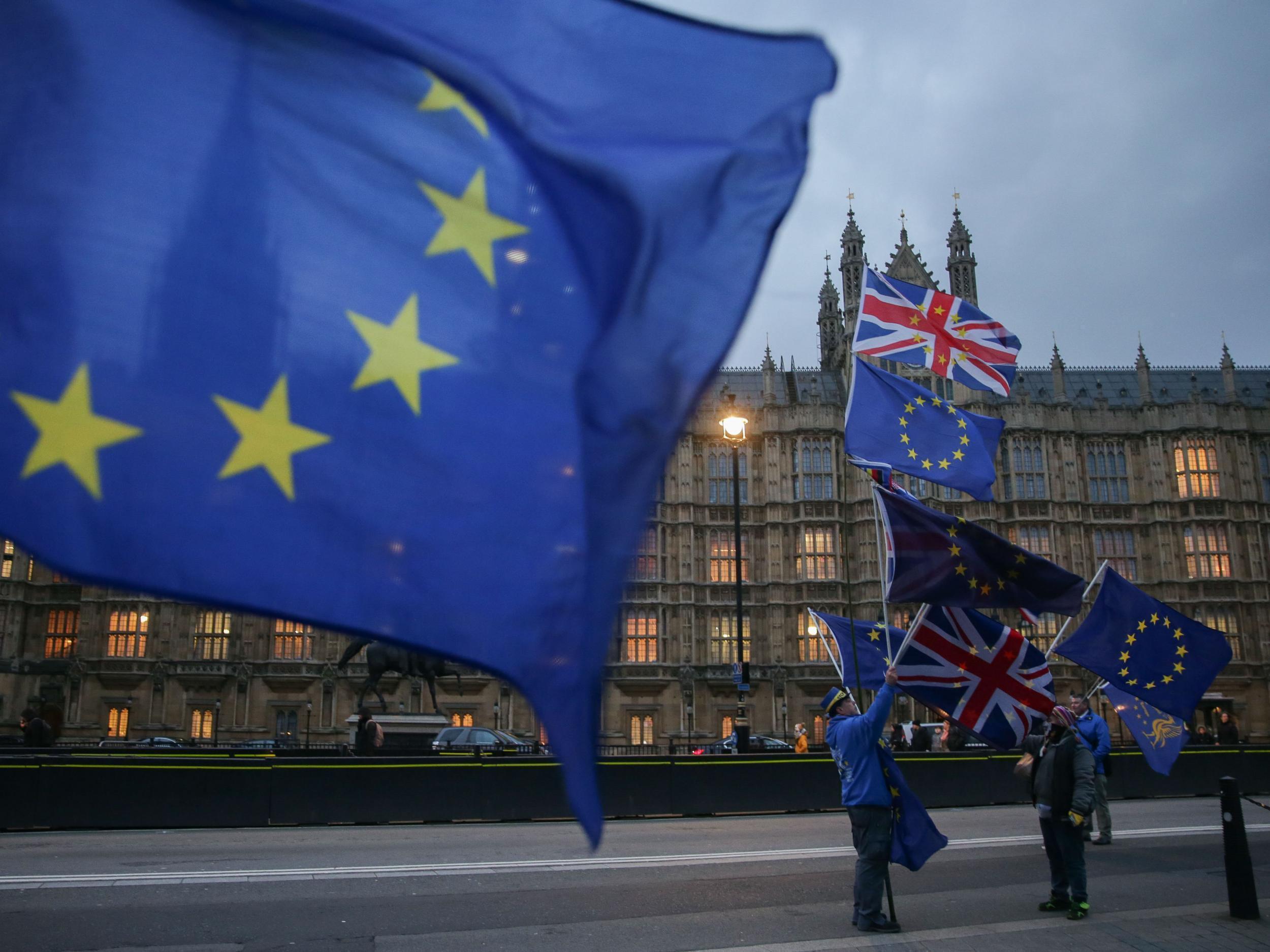Majority of voters think Brexit will hit UK economy immediately, poll finds
Voters expect economy to take immediate hit but recover after ten years

A majority of voters think Brexit will harm the UK economy in the coming years, a new poll has found.
The survey, carried out by BMG exclusively for The Independent, found 52 per cent of people think the economy will weaken in the next five years as Britain leaves the EU, compared to just 26 per cent who think it will grow stronger.
Almost one in four voters (24 per cent) believe the economy will get “significantly weaker” as a result of Brexit, while only 7 per cent think it will grow “significantly stronger”.
The poll was released shortly after a leaked Government assessment found some regions of the UK could see their economies shrink by as much as 16 per cent if Britain leaves the EU without a trade deal.
The North East will be hit especially hard, followed by the West Midlands, North West, and Northern Ireland.
Analysis seen by The Independent suggested the total cost of a no-deal Brexit would be up to £252bn over 15 years if Britain crashes out of the EU without a trade deal, while securing a free trade agreement would reduce output by £131bn.
Even the least costly option of remaining in the single market and customs union would mean £52bn in lost economic growth, according to an analysis of the Government’s own assessment by the anti-Brexit group Best for Britain.
Despite fears of a short-term hit, close to half of voters are confident that the positive impact of Brexit will emerge further down the line.
According to the BMG poll, 44 per cent think leaving the EU will strengthen the UK economy in at least ten years’ time, compared to 36 per cent who believe the impact will continue to be negative.
The survey also reveals widespread confusion about the Government’s Brexit strategy.
74 per cent of respondents said Theresa May’s plans were “unclear”, compared to just 17 per cent who said they were clear.
The lack of clarity applies to a number of key areas of Brexit talks, the poll found. 82 per cent of respondents said the Government’s plans for the Northern Ireland land border were unclear, while 75 per cent said the same was true of ministers’ intentions on immigration. 74 per cent said they were unclear on the Government’s trade strategy.
The finding appears to undermine ministers’ claims that they have a “clear plan for Brexit” and supports EU leaders who say the UK must clarify its intentions in relation to a number of key issues.
Speaking last week, Michel Barnier, the EU's chief negotiator, said: "I don’t understand some of the positions of the UK...I am surprised by these disagreements. The positions of the EU are very logical."
Preliminary talks are already underway ahead of the second round of formal Brexit negotiations, which are due to begin next month.
Join our commenting forum
Join thought-provoking conversations, follow other Independent readers and see their replies
Comments
Bookmark popover
Removed from bookmarks